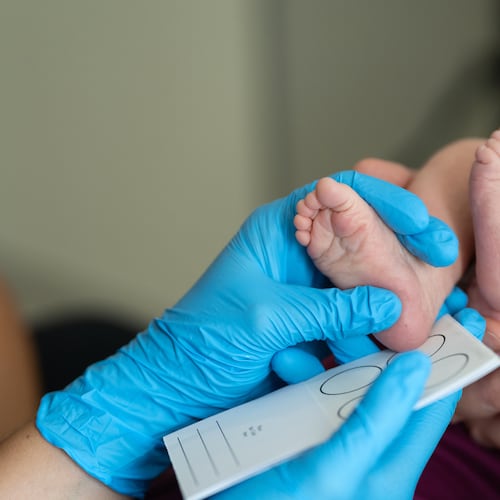My fellow obstetrician-gynecologists and I became doctors because we wanted to care for people and serve our communities. We have trained for many years to learn how to provide this care based on the foundations of scientific evidence and the principles of avoiding harm, trying to do good, aiming for justice and prioritizing the autonomy of our patients. We have spent more long nights on labor and delivery than we can count and have missed events and celebrations with our own families and friends to be there when our patients need us most. And we do that because we deeply cherish our relationship with our patients.
It has been slightly more than two years since Georgia’s abortion law went into effect, banning most abortions in the state after about six weeks. As doctors, we continue to do everything in our power to care for our patients, but the harm this law has caused our patients and colleagues is immeasurable and cannot be overstated.
Credit: Handout
Credit: Handout
Every day, we see real patients in real situations for whom our state’s law prohibits us from providing the evidence-based care they might need and that we have been trained to provide. Before, if a patient developed a complication during or because of her pregnancy, we would assess the risk facing our patient, and talk to her and her family about her options and priorities. Together, we would make a plan to move forward — and that plan might involve ending the pregnancy through an abortion. Now, instead of weighing our medical expertise and our patient’s values and priorities — what we simply consider practicing good medicine — we have to weigh whether this patient in this situation is sick enough to qualify for a “medical emergency” and thereby could have an abortion under Georgia law.
Despite what proponents of the law might argue, that is not always an easy task.
The law specifically states that ”’medical emergency’ means a condition in which an abortion is necessary in order to prevent the death of the pregnant woman or the substantial and irreversible physical impairment of a major bodily function of the pregnant woman.”
As doctors, we must ask: What does that mean? How close to death does she need to be? What if the impairment to a major bodily function is sometimes reversible? And who gets to decide if the possible impairment is substantial?
The stakes always are high when you are having complex conversations with patients experiencing complications, and now even more so. If someone disagrees with our assessment, we risk criminal prosecution, jail time and loss of our medical licenses.
Sometimes people wonder that if the language is unclear, maybe doctors just need more guidance from laws and medical societies. We would argue no. Laws are a blunt instrument. They cannot possibly take every person, family and medical situation into account. This is why the largest national organization representing OB-GYNS, the American College of Obstetricians and Gynecologists, and more than 75 other health care organizations oppose all legislative interference in the patient-physician relationship. No additional guidance can make a bad law acceptable.
A fundamental part of the patient-physician relationship is trust. The patient trusts that the clinician, team and system will assess her individual situation, considering her current medical conditions and how they interact with her history and priorities. As doctors, we should be able to offer our patients all evidence-based interventions, including abortion care. Not only does this law deny women the ability to access care in their communities and force the continuation of a pregnancy that may threaten her health, well-being and future, but it also forbids doctors from applying their medical training, expertise and ethical principles in the care of their patients. Furthermore, it erodes trust. And this has a ripple effect across health care settings and beyond.
Despite the law’s restrictions — and threats of prosecution and dismantling our careers — we remain motivated to do everything we can to care for our patients. Georgia’s OB-GYNs from private practice, academic hospitals and community-based clinics — representing the subspecialties of maternal-fetal medicine, complex family planning, reproductive endocrinology and infertility, and general OB/GYN practice — are working together to find ways to support our patients even in this dire situation. Each of us feels a deep ethical obligation to care for our patients, and we remain committed to continuing this work.
Unfortunately, as long as abortion bans such as Georgia’s remain in place, doctors will struggle to provide and patients will struggle to access the health care they need.
Kate Boyenga is the executive director of the Georgia OBGYN Society. She is submitting this essay on behalf of the GOGS Taskforce, representing physicians practicing across Georgia. All members of the Taskforce approved this essay.
About the Author
Keep Reading
The Latest
Featured



